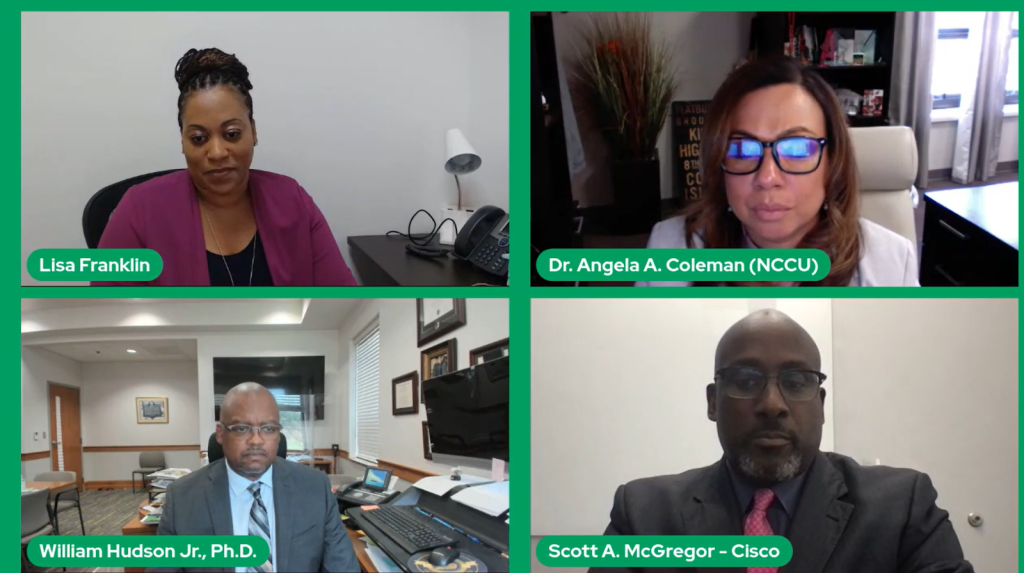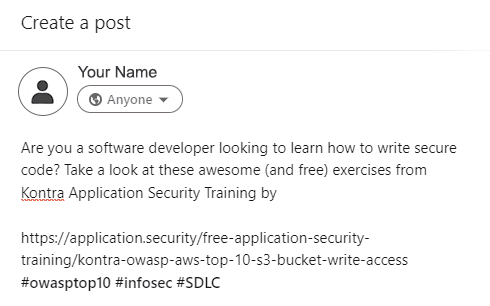There is no denying that current recruitment strategies have a high impact on the uncertainty surrounding the supply of ready, qualified candidates for open employment opportunities across the nation. With job shortages on the rise in technology, recruiters are regularly on the lookout to fill new roles for their clients, landing front and center in determining the success of hundreds of student applicants.
This makes it crucial for recruiters to understand what equity in employment looks like in practices and processes, taking one step further to evaluate what’s working and what needs improvement.
For this panel discussion, Equity in Employment: How HBCUs are Contributing to the Talent Pipeline, our distinguished panelists Dr. Angela Alvarado-Coleman, Vice Chancellor for Student Affairs at North Carolina Central University, Dr. William Hudson Junior, Vice President for Student Affairs at Florida Agricultural & Mechanical University, and Scott McGregor, Leader of Inclusive Partnerships at Cisco, joined our very own Lisa Franklin, VP of Global Brand Marketing at ThriveDX, to cast reflective eyes on the common misconceptions surrounding HBCUs and diversity in the talent pipeline.
Historically, HBCUs are higher education institutions founded before the Civil Rights Act of 1964. Through education, HBCUs were intended to serve African American and black communities, offering rich history and helping promote a culture of diversity for corporate entities, nonprofits, and federal contractors that recruit and fill open employment opportunities.
“Our institution has upwards of 9,000 students per year, with demographics that are 84% African American, 6% Hispanic, 8% white and 2% other races,” stated FAMU’s Dr. William Hudson Junior. “We focus on making sure to provide the social mobility necessary for students to move in this global economy. As advocates for our students, we aim to make them proactive citizens of society.”
Statistically, the consensus shows us that black students don’t actively choose to pursue technology as an educational track, leading to fewer black graduates pursuing tech education degrees or job roles.
Common misconceptions that lead to these patterns of behavior are the belief that technology is not an accessible or achievable education. This belief is grounded in the observation that early exposure is not actively or consistently encouraged, along with student worries about financial support.
“Students of color often shy away because it is not instilled in them early that they have the capacity to be successful in those areas,” says Dr. William Hudson Jr. “By the time they get into their junior or senior year when they have to get prepared for college, they haven’t taken the necessary skill sets to be competitive in those areas.”
“Some Liberal Arts majors don’t think that they can enter the field because they don’t have the background,” says Scott A. McGregor from Cisco. “But learning critical thought is a significant skill. These professions must connect that learning by talking to people and creating solutions for people, something evident in tech.”
To prepare for a switch into the technology field later on, panelists were in agreement that the study and application of mathematics was ideal to encourage the growth of skills suitable to a tech major with a tech career in mind.
“Math is universal. Looking at performance, many are taking upper level calculus and physics. Technology is very important here, and to have that background to be successful, we need to encourage our students to participate in those math, tech, and engineering summer camps. Then, they can get that thirst for knowledge and have the drive and resilience necessary to succeed in those other areas,” Hudson remarks.
“We have an anemic science and math pipeline.”
— Mr. Scott A. McGregor, Cisco
It is also surprising that the number of students who have limited experience discount their experiences as enough to break into the industry, with some showing concerns that their current experiences don’t reflect as relevant to the field.
“By saying gaming versus saying tech as a way to speak their language, this is a way to overcome the barrier of intimidation there that they do not know enough to enter the field,” says Hudson.
But what can institutions and corporations do to encourage a shift in diversity and practices that continue to take shape as students make their way through their education?
“There are a lot of deterrents in the application process that make it hard for black candidates to land roles, such as requirements for additional documentation beyond the typical resume” says Dr. Angela A. Coleman, Vice Chancellor of Student Affairs at North Carolina Central University. “Money talks. Some steps companies can take to make a mutually beneficial relationship is to provide financial support, scholarships, paid internships, and research for academic programs.”
Visit our LinkedIn to listen to more of our latest panel discussion, Equity in Employment: How HBCUs are Contributing to the Talent Pipeline, to explore what corporations can do to encourage the successful recruitment of HBCU students, the customization of training to address skill gaps, and increase the success of future tech professionals. Moderated by Lisa Franklin, this event goes into detail about the misconceptions and daily challenges of recruitment.
Want to hear more on trending topics in higher education? Register for our upcoming panel focused on Building Infrastructure to Ensure Hispanic Serving Institutions (HSIs) Have the Right Resources. Or, visit our blog to read more about interesting topics in education, careers, and lifestyle.


